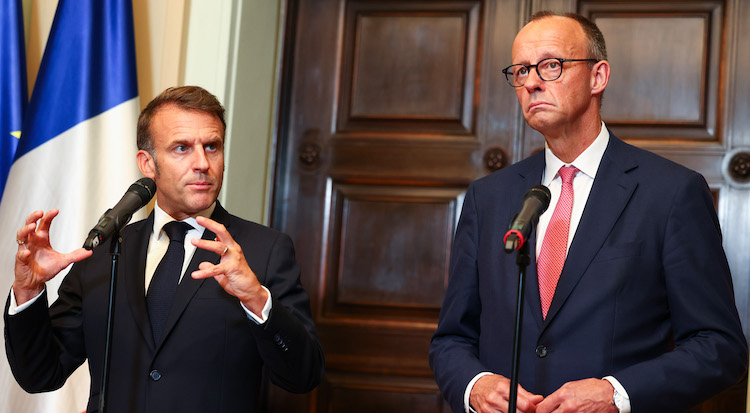In an era of contested realities, we should mark clearly the moments when questions have been resolved and the facts are revealed.
Three days ago, Secretary of State Marco Rubio said the following in an interview: “Talks with Hamas fell apart on the day Macron made the unilateral decision that he’s going to recognize the Palestinian state. … So those messages, while largely symbolic in their minds, actually have made it harder to get peace and harder to achieve a deal with Hamas.”
To any honest observer, this is very clearly what happened in late July when French President Emmanuel Macron capped off a week of one-sided pressure on Israel by declaring that Hamas need not make any concessions in order to be rewarded with sovereignty. France wasn’t the only bad actor that week, but the statehood declaration made sure that the cease-fire and hostage deal Israel had agreed to was dead and buried.
But a note of confirmation for Rubio’s version of the course of events is contained in a New York Times tick-tock of the lead-up to Macron’s massive misstep, which was joined by Macron’s reliable blunder brother Keir Starmer in London.
The hostages who would have been released during that cease-fire may not survive to the next, and Macron (and to some extent other European leaders, including Starmer) may have abetted their murder. So why did he do it? Reports the Times:
“Mr. Macron told [German Chancellor Friedrich] Merz that he was under immense pressure at home and would most likely recognize a Palestinian state at the United Nations in late September.… The next day, without telling the Germans, Mr. Macron announced his decision publicly.”
Behind the scenes, Merz was playing a delicate role. He has far more affection for the Jewish state and the wider Jewish world than either Macron or Starmer or nearly any other Western leader save Donald Trump. Alone among the three, Merz has a genuine desire to see the state of Israel survive. But he is also quite critical of Israeli policy of late and suspended some weapons sales after Israel’s announcement that it would pursue Hamas into Gaza City.
Macron acted out of panic and fear. He is not the only world leader under pressure to throw Israel under the bus, but he is a uniquely weak-willed one.
Merz, too, wants to see the establishment of a Palestinian state. But he is of sound mind, and he wanted to approach such a radical change with tact and caution and a sense of the long-term implications. When Starmer went public with his intent to follow Macron on a Palestinian state, the Times reports, Merz was less than pleased:
“Mr. Starmer’s announcement surprised the Germans. They already viewed Mr. Macron’s announcement as counterproductive, hardening Israel’s tone and Hamas’s stance in cease-fire negotiations in Qatar, which had collapsed.”
Events had taken place exactly as Marco Rubio said they did. The one thing everyone can agree on is that Macron did great damage to cease-fire efforts.
Thus we have a rare moment when the truth has emerged from the shadows: France’s announcement of its recognition of a Palestinian state sabotaged peace, prolonged the war, and may have signed the death warrants of Israeli hostages in Gaza. It is a moment that should be taught in international relations courses for decades to come; a cautionary tale.
The Times piece also contains an unintentionally revealing (and humorous) sentence: “Given its Nazi history and its status as one of Israel’s most important allies, Germany had always been unlikely to recognize a Palestinian state before it was established.”
Here’s another way of saying that Germany was unlikely to pretend that something existed until it existed. This sets it apart from France and Britain, and a growing list of Western countries which insist on going to war against reality.


















